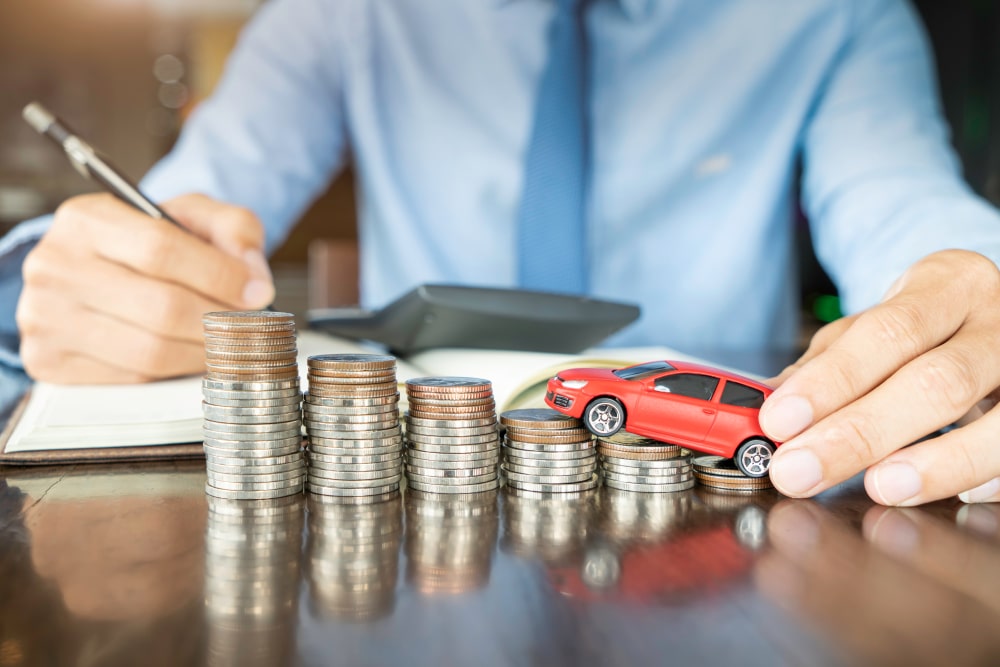
Even the safest and most attentive of drivers could still end up in a collision. According to data provided by the Florida Department of Highway Safety and Motor Vehicles (FLHSMV), there were 569,182 drivers involved in motor vehicle collisions in the state in 2020. An average of more than 900 crashes were reported each day. Following a crash, you need money to get your vehicle repair—but you may be wondering, How much does an accident devalue my car?
Diminished value is a serious concern for vehicle owners who have been involved in an accident. The data is clear: A crash is likely to reduce the resale value of your car, even if it is completely repaired. At Bernheim Kelley Battista & Bliss, LLC, we help our clients get real justice and full compensation. Our Fort Lauderdale car accident lawyers provide a comprehensive overview of the most important things that you should know about diminished value claims.
Table of Contents
- Automobile Depreciation: Understanding the Basics
- Why Does a Vehicle Lose Value in a Car Accident?
- Can You Get Compensation for Vehicle Damage After an Accident?
- My Car Cannot be Salvaged/Rebuilt—What Compensation Can I Claim?
- What is a Diminished Value Claim and How Does it Work In Florida?
- How Do You Calculate Diminution of Value for a Car Accident?
- How Do I Determine How Much My Car Was Worth Before the Accident?
- When Should I File a Diminished Value Claim in Florida?
- Is There a Way to Tell if a Vehicle has Been Involved in a Crash?
- Contact BK Law for Help With a Diminished Value Claim in South Florida
Automobile Depreciation: Understanding the Basics
An Automobile is a Depreciating Asset
To start, it is important to have an understanding of automobile depreciation, how it works, and why it matters for crashes. Depreciation is a concept used in business and accounting to describe the “loss of value” in an asset over time. General wear-and-tear causes depreciation. Automobiles are depreciating assets. As you may have heard before, a new car loses a significant chunk of value when it leaves the lot. According to a report from CarFax, the average new car loses 10% of its resale value within the first month. After that initial drop, depreciation is far more gradual. A car that is well cared for may only depreciate a small amount between year four and year five.Vehicles Depreciate at Different Rates
Not all vehicles depreciate (lose their value) at the same rate. Many different factors matter. For example, U.S. News and World Report published an annual survey on the makes and models that hold their value best—meaning they depreciate the slowest. A vehicle that is driven more frequently will also depreciate more rapidly. Each mile adds a little more wear and tear. On the other hand, a car that is well-maintained could depreciate more gradually. Proper maintenance can help to hold a vehicle’s resale value.An Accident Can Cause an Inherent (Irreparable) Loss of Value
A car crash will cause additional depreciation (loss of value) of a vehicle. This happens even if the car is completely and properly repaired by a skilled mechanic. Studies conducted by industry experts suggest that a collision takes an average of $500 to $2,000 off of the resale value of a vehicle, even if it can be completely repaired. For example, imagine that you were involved in a car crash while backing up in South Florida. You required $3,000 to get your vehicle restored to its previous condition. Due to depreciation (diminished value), it is still probably worth less than it used to be because it has that accident on its record.
Why Does a Vehicle Lose Value in a Car Accident?
You may be wondering why a car accident causes an automobile to lose inherent value. To answer this question, it is useful to think about why vehicles have value in the first place. Your car’s economic value is more than merely an abstract notion—it is determined by how much you could sell it for on the open market. That is why a single crash can cause a car to lose inherent value even after it is fully repaired. Many buyers are not willing to pay as much for a vehicle that has a collision on its record, especially a major crash.
Consider the following example: Imagine that you went to a used car dealer in Broward County. You found two similar Ford sedans that meet your needs. Each car is listed at a price of $7,500. Imagine that you then learn that one of the vehicles was involved in a major crash last year and required extensive repairs. Are you still as interested in purchasing that vehicle? Would you prefer the car that had no accident on its record? Most people would. The bottom line: Car crashes cause diminished value primarily because buyers pay less for vehicles with a crash history.

Can You Get Compensation for Vehicle Damage After an Accident?
Yes. You have the right to seek compensation for vehicle damage after a crash. If you were involved in an accident that was caused by the negligence of another party, you can seek financial relief for the full value of your vehicle damages. Your vehicle damage can be divided into two broad categories:
- Repairable Damage: Vehicle damage claims start with repairable damage. This is the damage that needs to be fixed—assuming it is possible to do so—to ensure that your car runs as well as it did prior to the collision. Repair damage is the basis of a property damage car accident claim.
- Depreciation (Diminished Value): Beyond the repairable damage, you may have an additional legal claim for vehicle depreciation. This type of claim is called a diminished value claim or a diminution of value claim. As noted previously, the purpose of this type of claim is to compensate the vehicle owner for the “inherent” and “intangible” loss of resale value that their car suffered because it was in a crash.
My Car Cannot be Salvaged/Rebuilt—What Compensation Can I Claim?
A diminution of value compensates a vehicle owner for the intangible loss of resale value after full repairs are made. If your car cannot be salvaged or repaired due to the severity of the accident, then you have a total loss case. Under Florida law (Florida Statutes § 626.9743(5)), a vehicle is deemed to be a “total loss” if it suffered damage worth more than 80% of its pre-accident value. If it costs almost as much to fix your vehicle as it is worth—or if it cannot be fixed at all—you have a total loss claim. There are basically two broad ways to resolve a total loss claim. The claimant is provided with the actual cash settlement that is equal to the pre-crash value of their vehicle (most common) or a suitable replacement vehicle of equal or greater value is provided.
What is a Diminished Value Claim and How Does it Work In Florida?
Florida is a partial no-fault car accident state. However, the no-fault law does not apply to property damage claims. In effect, this means that the party deemed responsible (at fault) for an accident is legally liable for the resulting damages. Fault matters. You need to dispute fault in a car accident if you believe that you are improperly being assigned blame by an insurance company. In Florida, your diminished value claim is part of your more comprehensive property damage claim. As noted previously, a car accident property damage claim always starts with the repairable damage. If your car can be repaired/restored, the cost to do so is the basis of property damages. From there, a diminished value claim may add additional compensation for loss of resale value.
How Do You Calculate Diminution of Value for a Car Accident?
In theory, the calculation of a diminished value claim is actually relatively straightforward. You take the pre-crash market value of the car and subject the post-crash market value of the car after all repairs have been made. The irreparable loss between pre-crash resale value and post-crash resale value is the loss. Of course, in practice, calculating diminished value can be challenging. It is not uncommon for disputes to arise over the claimed pre-crash or post-crash value. A car accident lawyer with experience handling diminished value property damage claims can help you build a well-supported case.
To learn more, schedule a free consultation with us today.
How Do I Determine How Much My Car Was Worth Before the Accident?
Whether you are bringing a diminished value claim or a total loss claim, it is imperative that you establish the pre-crash fair market value of your vehicle. You will need to know what your car was truly worth prior to the accident to get a full and fair settlement for your property damage. The key factors that impact your vehicle’s value include the following:
- Make and model;
- Year;
- Upgrades;
- Miles driven; and
- Condition.
When Should I File a Diminished Value Claim in Florida?
You should file your diminished value claim as part of your greater property damage claim. Be proactive: You do not want to fall behind the insurance company. Once vehicle repairs have started, you will be in a position to pursue financial compensation for diminution of value to your car. If you have any specific questions or concerns about initiating your property damage case and/or a personal injury claim, an experienced South Florida car accident attorney can help.
Is There a Way to Tell if a Vehicle has Been Involved in a Crash?
Yes. It is possible to look up whether or not a vehicle has been involved in an accident that has been reported to the authorities. While there are a few ways to do so, doing so generally involves running a VIN check on the vehicle in question. Every car sold in the United States after 1981 has its own unique Vehicle Identification Number (VIN). A VIN is a 17 digit string of numbers and letters that effectively serves as an identifier for a vehicle. Many companies—including CarFax—allow people to run VIN checks on vehicles to look for basic information about its history, including whether any major crashes have been reported. If you have access to a vehicle’s VIN, you can look to see whether or not it was involved in a crash. While the system is not perfect—some crashes may not be reported or the data may not be entered by authorities/insurers—the reality is that accident history is generally accessible in the United States.
Contact BK Law for Help With a Diminished Value Claim in South Florida
It is normal to be stressed out and overwhelmed after a car accident. If you are wondering, “How much does an accident devalue my car?” we can help. At Bernheim Kelley Battista & Bliss, LLC, we know how to get results. Every diminished value claim is unique. It is crucial that you receive personalized attention, guidance, and support from a reliable attorney. At Bernheim Kelley Battista & Bliss, LLC, our Florida auto accident lawyers fight tirelessly to help our clients get real justice and real results. If you have any specific questions or concerns about a diminution of value claim, our legal team is here as a resource. Call us now or contact us online to arrange your free, no commitment case review. From our Fort Lauderdale office and our other offices in Miami and Jacksonville, we handle motor vehicle accident claims throughout Florida.
Personal Injury Practice Areas
Car Accident
Truck Accident
Uber Accident
Scooter Accident
Bicycle Accident
Boating Accident
Medical Malpractice
Wrongful Death
Slip and Fall
Construction Accident
Jet Ski Accident
Workers Compensation
Catastrophic Injury
Pedestrian Accident
Pool Accident
Premises Liability
Bus Accident
Motorcycle Accident
Dog Bite Accident

